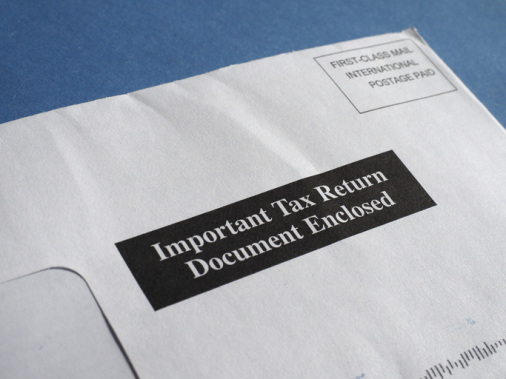5 things you need to know about missing the self-assessment tax return deadline

Authored by DAS
With the 31st of January deadline fast approaching, HM Revenue and Customs (HMRC) has warned that millions of taxpayers have still not completed their Self-Assessment tax returns online.
But what can you do if you miss the deadline? Charlotte Ellis, Paralegal at DAS Law, tells you what you need to know…
When should I file my return?
You don’t need to wait until January the 31st to file your Self-Assessment Tax return. HMRC is encouraging customers to complete their Self-Assessment tax return as soon as possible, so they know what they owe and can make payment by the 31st of January 2024. This also means if a repayment is due, it can be claimed sooner.
Who should complete a tax return?
You must send a tax return if, in the last tax year any of the following applied:
- You were self employed as a sole trader and earned more than £1,000 (before taking off anything you can claim tax relief on)
- You were a partner in a business partnership.
- You had a total taxable income of more than £100,000.
- You had to pay the high-income child benefit charge.
Or you may need to send a tax return if you have any untaxed income such as:
- Covid-19 grants or support scheme payments
- Money from renting a property (rental income)
- Tips and commission
- Income from savings investments and dividends
- Foreign income.
You can check if you need to send a tax return via: https://www.gov.uk/check-if-you-need-tax-return
The penalties for not filing a return
There are penalties for failing to file your tax return on time, there is an initially a penalty of £100 if your tax return is up to 3 months late. You’ll have to pay more if its later, and you could even be charged interest on late payments if you pay your tax bill late.
But what if you have good reason to file your return late – e.g. your business is recovering from a fire or you have suffered flooding?
You can appeal against a penalty if you have a reasonable excuse
HMRC says that a reasonable excuse for missing the deadline is “…normally something unexpected or outside your control that stopped you from meeting a tax obligation.” Examples include the recent death of a partner, an unexpected stay in the hospital, computer failures, service issues with the tax authority’s online services, a fire that prevented the completion of a tax return or postal delays.
Excuses that HMRC will not accept include:
- Your cheque bounced due to not having enough money;
- You found HMRC’s online system too difficult to use; or
- You didn’t get a reminder from HMRC.
If you have a disability and claim to have a reasonable excuse that prevented you from meeting a deadline, HMRC will consider whether you made a reasonable effort to file on time.
Cancelling or appealing a penalty
HMRC may cancel a penalty for late filing in cases where the taxpayer can show that there was a reasonable excuse for failing to file on time. However, that excuse needs to have prevented the taxpayer from filing a return over the whole period – in other words, it must have applied continuously.
For example, your case will be considerably weakened if you have worked and received taxable income during the period of the delay. HMRC might well argue that, if you were well enough to work, you were well enough to complete your tax return.
If you are still waiting for information to complete a return, it is entirely legitimate to make a reasonable estimate of the income or gain and then amend the return when the information becomes available. There is no penalty for amending a return, though there is a time limit for doing so.
Taxpayers have the right of appeal in respect of penalties charged and can argue the case in front of a tax tribunal.
Further information on legal topics can be found on DAS Householdlaw. To find out if you have access to this resource, please consult your policy documentation or contact your insurance broker.
About DAS Group
The DAS UK Group comprises an insurance company (DAS Legal Expenses Insurance Company Ltd), a law firm (DAS Law), and an after the event (ATE) legal expenses division.
DAS UK introduced legal expenses insurance (LEI) in 1975, protecting individuals and businesses against the unforeseen costs involved in a legal dispute. In 2018 it wrote more than seven million policies.
The company offers a range of insurance and assistance add-on products suitable for landlords, homeowners, motorists, groups and business owners, while it’s after the event legal expenses insurance division offers civil litigation, clinical negligence and personal injury products. In 2013, DAS also acquired its own law firm – DAS Law – enabling it to leverage the firm’s expertise to provide its customers with access to legal advice and representation.
DAS UK is part of the ERGO Group, one of Europe’s largest insurance groups (the majority shareholder in ERGO is Munich Re, one of the world’s largest reinsurers).

